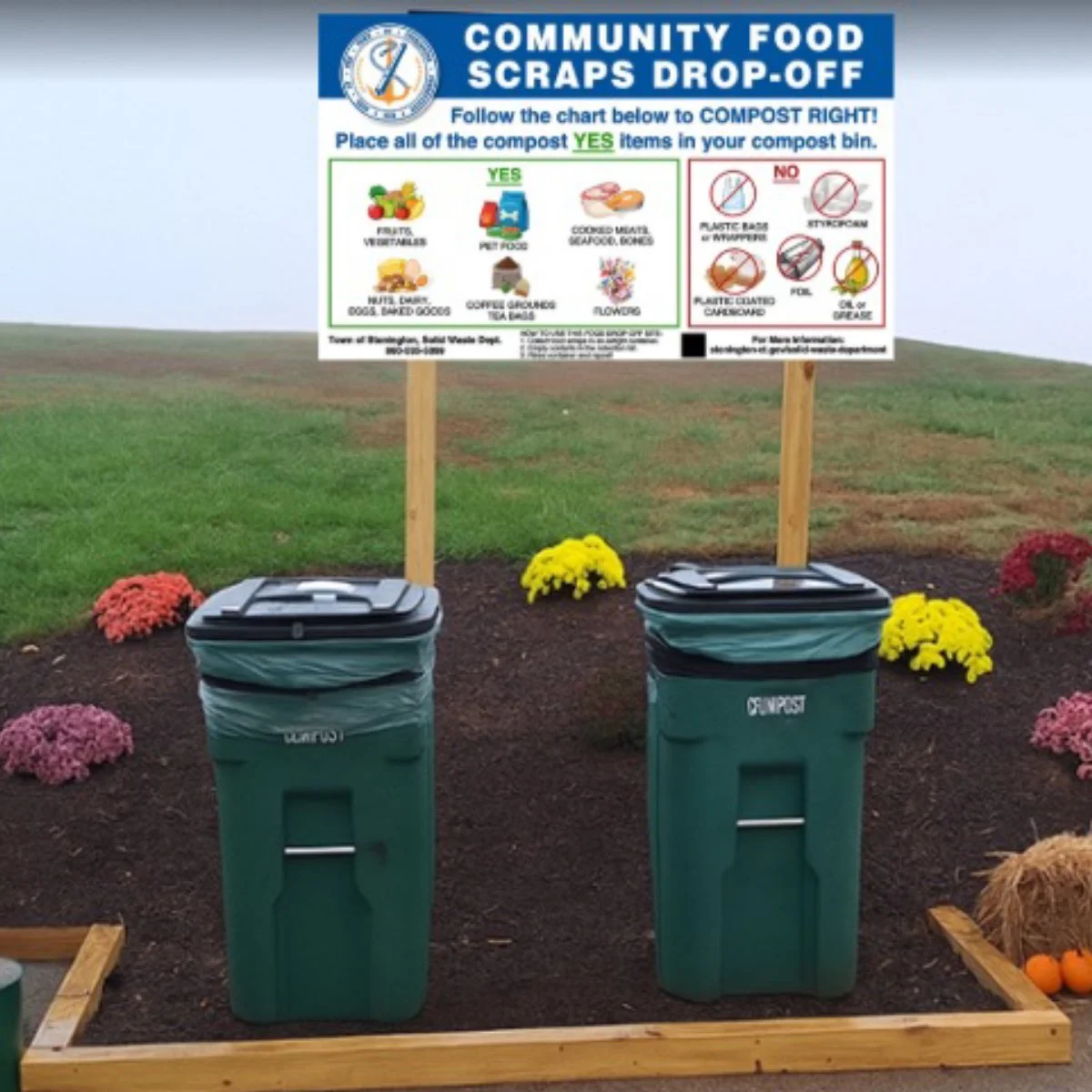Residential food waste
We’ve diverted over 26 tons of food waste since July!
Stonington is making great strides toward a more sustainable future — and you can be part of the success! Our new food waste collection program at the Stonington Transfer Station makes it easier than ever to keep valuable material out of the incinerator.
In just a few short months, residents have already helped divert 26 tons of food scraps from the waste stream. Instead of being burned in a yellow bag at the incinerator, this organic material is being composted and turned into nutrient-rich soil, a win for both the environment and our community.
Participating is simple and free: collect your food scraps — fruit and vegetable peels, coffee grounds, eggshells, meat, bones and plate scraps — and bring them to the organics bins at the Transfer Station. You can transport your scraps in a paper bag, bucket, or even a kitchen bowl, whatever works! If you like using compostable liners to help keep your bin clean, we sell sleeves of 12 for just $2 at the Solid Waste office in Town Hall.
Every small action adds up! By taking part, you’re helping lower disposal costs, and build a cleaner, greener Stonington. Not to mention using fewer yellow bags.
Rather have convenient curbside service? The Town of Stonington is sponsoring the first 3 months of service and a bin starter kit for FREE for the first 200 households who sign up with Black Earth Compost. There are about 50 unclaimed households remaining, so enroll while they’re still available. To learn more and sign up, visit Black Earth Compost/Stonington.
Who’s Black Earth Compost? Black Earth Compost has been chosen to maintain and manage the new regional composting facility being built in Preston. The Southeastern Connecticut Regional Resource Recovery Authority (SCRRRA) of which Stonington is a member town, is constructing the facility with grant funding received from CT DEEP. This facility will create the needed infrastructure for local food waste composting for our communities and save SCRRRA's 12 member towns significant disposal costs by producing a high quality, environmentally friendly soil amendment to replace manmade fertilizers.

